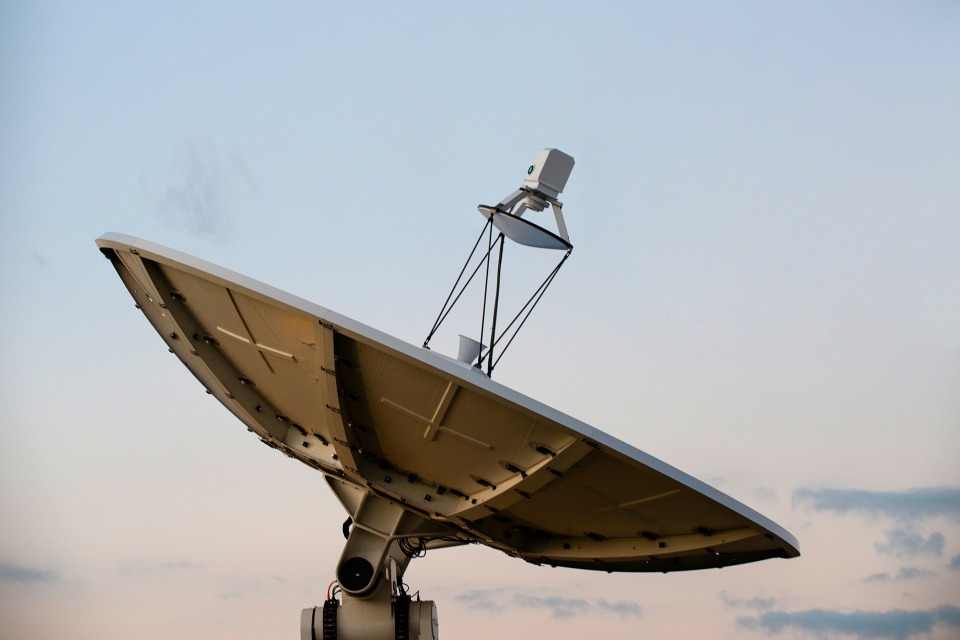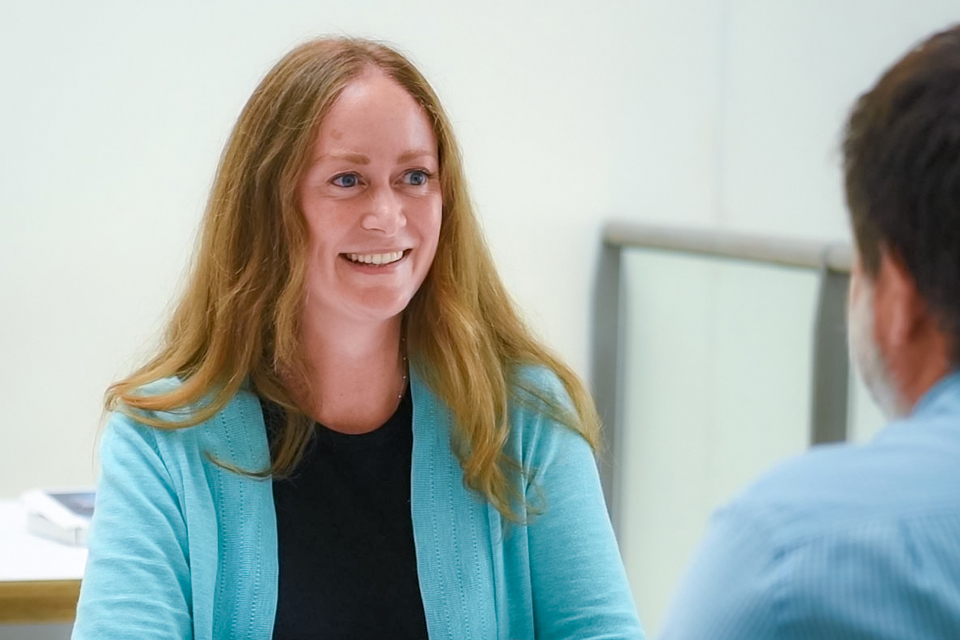Space: defence science and technology capability
Dstl provides the UK with advanced space science, technology, services and advice to monitor, protect and defend our interests in and through space.
Dstl’s space expertise ensures the UK fully exploits the potential of space for defence and security. We research and develop the latest science and technology and give advanced space engineering to support future UK defence space missions, the UK’s Defence Space Strategy and the UK’s National Space Policy. Some of the areas we’re focusing on include:
- satellite communications, intelligence and surveillance from space
- monitoring and tracking objects in all orbits, to protect and defend UK interests
- a series of satellite missions to trial prototype systems and technologies for future space operations, to support the government’s ambition to form a ‘digital backbone’ in space
- developing novel science and technology ideas for active service and future use, including looking outwards to 2030 and beyond
Pioneering space technology developments
We work with more than 100 businesses and organisations and 11 international partners to ensure the UK remains at the forefront of the latest space developments worldwide.
Future years will see us build upon pioneering science and technology through satellite launches, implementation of new equipment and refinement of existing tools. We’re working tirelessly with a range of partners across government, the military and our suppliers to make this happen.
We work with world-leading industry and academic partners to develop pioneering technologies. Recent innovations include space antenna technologies that enable the UK to deploy a number of antennae in space providing more accurate and frequent satellite images. This will allow all-weather Earth observation at fine resolution, gaining unique advantages with both civil and defence applications.
We collaborate with the Defence and Security Accelerator (DASA) to develop revolutionary advances in novel space technology. Competitions are frequently launched and there is also an open call to enable innovators to come to us at any time if you’re interested in helping to develop the next big thing in defence Space.
Operational advantage
Dstl is the science behind the newest part of the armed forces, UK Space Command. As the UK increasingly operates both as a joint force, and in partnership with our allies, an advanced space capability is essential to underpin our combat systems and support the other defence domains of air, land, sea and cyber.
Space technologies can give the UK operational advantage over potential adversaries.
Since 2020, Dstl has had the ability to task a commercial satellite by providing a UK government-owned and operated ground station . The Hermes relocatable ground station and mission operations centre improves how satellite imagery can be used by frontline commands.

Hermes ground station
We provided technical assurance to Tyche, Space Command’s first satellite, launched in August 2024 aboard SpaceX Falcon 9. Tyche can capture daytime images and videos of the Earth’s surface and will strengthen the UK’s intelligence, surveillance, and reconnaissance (ISR) capabilities as well as supporting other government tasks, including natural disaster monitoring. Space Command has now published the first images captured by Tyche.
Dstl’s science and technology also supported the procurement of Oberon, a further new satellite system with advanced imagery sensors. Oberon builds on the capabilities of Tyche, and Dstl provides ongoing technical assurance for Oberon and defence’s next generation multi-satellite system, the ISTARI programme.
Dstl is also building on existing ground facilities to enhance space operations. In conjunction with the National Security Strategic Investment Fund (NSSIF), 2 new remote ground stations have been installed at Goonhilly Earth Station (GES) in Cornwall to expand Dstl’s space to ground capability and enable increased experimentation.
A world-leader in space science
Dstl leads UK involvement in key international space science and technology activities. With these important ‘burden-sharing’ partnerships the UK is better able to respond to future opportunities and threats, with an enhanced and valuable defence and security capability:
- a Dstl-headed international group of defence space scientists observing the docking of 2 active orbiting satellites, in order to improve performance and space safety
- a space domain awareness experiment enabled scientists to capture data that will improve sensors, processing and intelligence for the UK and allied governments

Image of Intelsat 10-02 taken by MEV-2 during the Phantom Echoes satellite docking experiment (Image courtesy of Northrop Grumman)
- the development of new space weather sensing suite in partnership with the US Naval Research Laboratory (NRL), developed miniature sensors to improve the in-space measurement and modelling of the Earth’s upper atmosphere, which can affect satellite communications
- International Space Pitch Day, last held in November 2022, stimulate the finding, funding and fast-tracking of space innovation and technology alongside our allies
- we’ve hosted exchange staff to help deepen cooperation and collaboration, including secondees from the United States Space Force, with Dstl employees having the opportunity to benefit from this reciprocal arrangement
Future focus of space science
Through discovery and experimentation, Dstl’s space capability will help to ensure the UK is a meaningful actor in space by 2030.
To facilitate this we will bring together space-related science and technology work from across Dstl and beyond. We partner with frontline commands and collaborate with Space Command and Defence Equipment and Support (DE&S) to deliver the engineering prototypes necessary to enable first-of-a-kind space demonstration.
Our research often has applications outside defence. We work alongside the UK Space Agency, Defra and the Department for Transport to provide scientific and technical expertise.
As part of the Defence Space Strategy, we are building on the pioneering science, emerging technologies and novel concepts we generated in our first phase of operation, utilising that experience and lessons learned to provide robust and effective advice, technology and innovation in collaboration with our partners – be they international or across government, industry or academia.
Themes
Our staff, industry and academic partners work across a range of space scientific and technology themes including:
- space situational awareness
- the space environment
- space intelligence, surveillance and reconnaissance
- space control and resilience
- military satellite communications
- satellite launch, infrastructure and operations
- space architectures and advice
- space-based positioning, navigation and timing
Work with us
Career opportunities
We’re always looking for talented individuals to join us, particularly those with experience in development of satellite technology. Our staff have a broad range of skills, and are at all stages of their careers.

Find out about Gemma’s career as a Space Scientist or explore our current vacancies
Dstl offers apprenticeships, student placements and graduate opportunities in a broad range of science, technology, engineering and maths (STEM) disciplines, including opportunities to work within our space science and technology capability- have a look here for information on early careers with Dstl, including role profiles and application cycles.
We also regularly reach out to schools, colleges and universities, to engage with young people in STEM subjects, and encourage them to take up space careers.
We’ve visited careers fairs at local colleges and universities, worked with students from UTC Portsmouth to devise innovative ideas to solve space challenges such as debris and populating the moon, and tasked other UTC’s with planning a mission to one of Jupiter’s moons, Callisto.
Opportunities for suppliers
Our suppliers are a key part of unlocking our science and technology. There are several routes to working with us. We particularly welcome companies who have not worked with defence before and small and medium-sized enterprises.
The main supplier framework is Serapis lot 2, ‘Science in space’, while calls for innovation organised on Dstl’s behalf by DASA, help find, fund and fast-track innovation and technology. For more information on DASA competitions, go to our funding page
We have also worked alongside the UK Space Agency to develop a Space One Stop Shop to support organisations already working, or aiming to work, across civil and defence space.
Partnerships and projects
Internationally, we work closely with a wide range of governmental and academic institutions. Nationally, we collaborate with other parts of government, including Space Command the UK Space Agency, departments such as DEFRA and DFT. We also partner with a range of academic institutions including the universities of Warwick, Strathclyde and Birmingham. We also lead the Astrodynamics Community of Interest, a collaboration to track objects in space.
Talk to us about potential future partnerships and projects at DstlSpaceProgramme@dstl.gov.uk
Updates to this page
-
Added new sentence and link: 'We have also worked alongside the UK Space Agency to develop a Space One Stop Shop to support organisations already working, or aiming to work, across civil and defence space.'
-
Added links to Tyche imaging and news article about Oberon.
-
Added information about Dstl's work on Tyche and at Goonhilly Earth Station.
-
Updated page information with more recent developments, press releases, links and images.
-
Added link to Defence Space Strategy.
-
Fully updated with details of latest science and technology research and development by Dstl's Space capability.
-
First published.